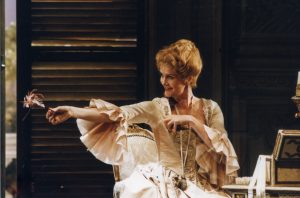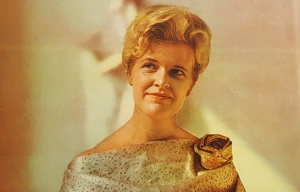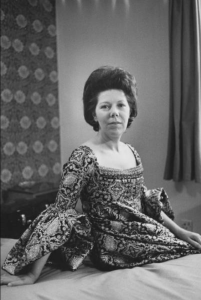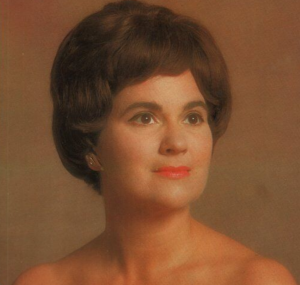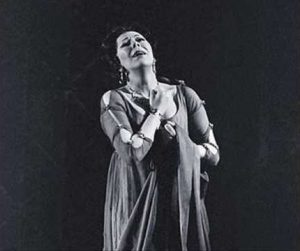Podcast: Play in new window | Download (Duration: 1:40:37 — 114.8MB) | Embed
Subscribe: Spotify | TuneIn | RSS | More
The second of my Listeners’ Favorites episodes for January is introduced by my dear friend Elliot Levine, a founding member of the Western Wind Vocal Ensemble, with whom he sang bass for 47 years. He is also an exceptional composer (who among his many other works has composed material expressly for me which I have sung with great pleasure and joy), He is also a valued choral singer and clinician. He has been a devoted listener to, and supporter of, Countermelody since its inception and among his many favorite episodes, he has chosen one of my very favorites to highlight, my birthday tribute, first published three years ago, to superbissima Margaret Marshall, who celebrates her birthday on January 4th.
Since she burst upon the scene in the late 1970s, Margaret Marshall has been a favorite of lovers of great singing. Her timbre, artistry, and technical facility evoke comparisons with many treasured singers of the past. Though she retired from public performance in 2005, in the year 2020 she launched, in tandem with her daughter Nicola and a group of dedicated supporters, a website called Songbird, which focuses on the early years of her career, and which features many rare soundclips, both live and studio, from that period, many of which have been assembled into a new downloadable release entitled “Margaret Marshall Songbird.” Today’s episode features a wide range of her live and studio recordings, including a few samples from the Songbird release. Included are works by Galuppi, Pergolesi, Vivaldi, Bach, Handel, Haydn, Mozart, Salieri, Gluck, Elgar, Finzi, Richard Strauss, and Alban Berg in recordings and performances between 1975 and 1990, with collaborators including conductors Neville Marriner, Riccardo Muti, John Eliot Gardiner, Vittorio Negri, Charles Groves, Antal Doráti, Philip Ledger, and Rafael Kubelik and fellow singers Ann Murray, Francisco Araiza, Alfreda Hodgson, Felicity Palmer, and Sesto Bruscantini. Compiling this episode has provided my ears and spirit with many blissful hours; I wish my listeners the same experience! Many thanks to both Margaret and Nicola for providing advice and guidance in the selection of today’s material, and many happy returns to the “Scottish supersoprano”! Since this episode was published, Margaret has published a second series of rare recordings available via download on her website, as well as Apple and Spotify. Margaret Marshall Songbird 2 includes exquisite performances of Bach, Mozart, Schubert, Wolf, and Sacchini, and, like the performances on this recording, simply must be heard to be believed.
Countermelody is a podcast devoted to the glory and the power of the human voice raised in song. Singer and vocal aficionado Daniel Gundlach explores great singers of the past and present focusing in particular on those who are less well-remembered today than they should be. Daniel’s lifetime in music as a professional countertenor, pianist, vocal coach, voice teacher, and journalist yields an exciting array of anecdotes, impressions, and “inside stories.” At Countermelody’s core is the celebration of great singers of all stripes, their instruments, and the connection they make to the words they sing. By clicking on the following link (https://linktr.ee/CountermelodyPodcast) you can find the dedicated Countermelody website which contains additional content including artist photos and episode setlists. The link will also take you to Countermelody’s Patreon page, where you can pledge your monthly support at whatever level you can afford.
